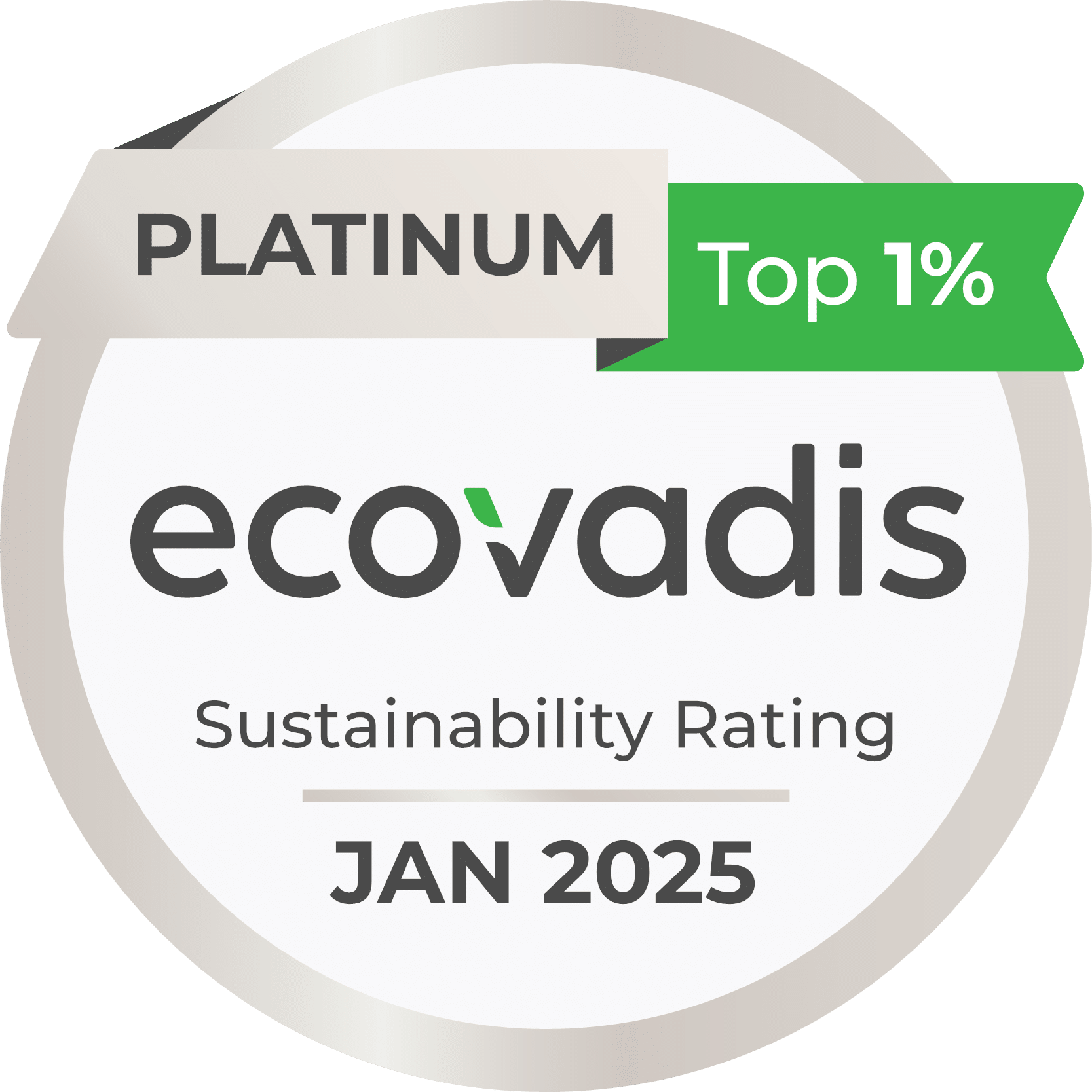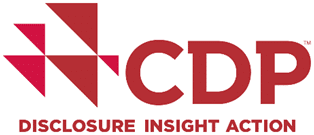Sustainability
Two-plus decades, one goal: Sustainability
From day one, we’ve been reusing and recycling our products and the plastics that make them. Even as we’ve grown, our priority remains the same: sustainability for all.
Sustainability Mission Statement
Cabka’s power is transformation because we know that while resources are limited, possibilities are endless. Innovation in transforming used plastics into new products is at the heart of our business. Everything we do is with the environment in mind. We are committed to balancing circularity, climate impact, and the use of and impact on the world’s resources through our business model. This is a challenge we are ready to embrace and which we want to measure our performance against.
Cabka wants to change established processes and systems to make them more efficient and sustainable for us as well as for future generations.
Our colleagues are our best asset in pursuing our mission. They rely on a positive work environment, where everyone is treated with respect and openness and where we strive for continuous improvement in occupational health & safety. We understand diversity as an accelerator for growth and driver of innovation.
Just as we regularly engage with our customers and suppliers to identify new opportunities for plastic waste transformation and their best utilization in sustainable supply chains, we continuously exchange with our stakeholders to help us prioritize and advance on material sustainability topics.
Cabka
Transformation Matters.
ESG as Our Core Product
From day one, Cabka has been reusing and recycling our products and the plastics that make them. Even as we’ve grown, our priority remains the same: sustainability for all. Cabka’s roots lie in recycling, so we never believed that sustainability and prosperity must be mutually exclusive. Long before sustainability became a buzzword, it was central to how we operated. Three decades later, that remains the case, even as Cabka has grown into the market-leading manufacturer of recycled plastic pallets, large containers and expert in logistics efficiency that it is today.
The majority of Cabka’s products are made from recycled plastics, are designed to be used again and again, and are 100% recyclable at the end of their life. This keeps waste out of landfills and incineration, averting both unwanted costs and unwanted environmental impacts.
Cabka unites an international workforce, bringing together a diverse, cross-continental team of around 700 employees speaking many different languages, all united by the purpose of creating a more responsible and sustainable future for everyone.
ESG Commitment
Cabka has a set of policies stating its commitments in the area of Environment, Health & Safety, Human Rights, Suppliers, Diversity, and Business Ethics. See the Principles & Policies section for all Policies.
After Cabka got listed on the Dutch stock market in early 2022, Cabka’s Management Team initiated the development of an ESG framework which is to comprise a comprehensive set of key commitments across all the Environmental, Social and Governance (ESG) dimensions.
Materiality Assessment
The basis of Cabka’s ESG-strategy is a double materiality assessment conducted in 2024 to determine which sustainability issues are most relevant to Cabka’s business operations and stakeholders. In this process, both risks and opportunities for Cabka, as well as positive and negative impacts on our stakeholders and the environment were analyzed. The assessment included comprehensive stakeholder engagement, including customers, suppliers, business analysts, employees, local communities, and competitors.
The results of the materiality assessment highlighted 18 key impacts, risks, and opportunities for Cabka within the following ESG topics:
• Environment: Climate Change and Circular Economy
• Social: Own Workforce and Consumers & End-Users
• Governance: Regulatory Compliance, Business Conduct, and Innovation
Read more on the process and outcome of our double materiality assessment here: https://investors.cabka.com/static-files/3010de3e-198f-45ba-994c-66d031791b84 (p. 70-75)
Ambition Levels
Cabka aims to enable breakthrough all over the supply chain, with continuous innovation of smart reusable solutions for transport packaging with a focus on quality in the product process and circularity as the core element.
Cabka’s Ambitions on core environmental topics:
• Lead the circular economy transition by continuously raising the bar around material use, manufacturing and move towards 100% recycled product input.
• Support the Paris Agreement by setting a near term Science Based Target and moving towards Net Zero for the entire value chain by 2050.
• Take responsibility for our environmental impacts beyond our direct operations through engagement with our suppliers on their environmental performance.
Cabka’s Social Ambitions:
• Ensure a diverse and inclusive workplace to help drive business growth through balanced decision making and ensure equal opportunities within Cabka.
• Working towards Zero Harm and Zero Accidents by fostering a healthy and safe working environment, people engagement and integrating health and safety into our culture, with annual improvements on the related indicators.
ESG Management Structure
The management of ESG is implemented in a hybrid (central and decentral) structure in the organization. Senior management in the company is directly involved in the aspects identified as material by the Group as a result of the materiality analysis. This is to ensure that ESG management fits our organization and delivers on our priorities.
Keeping Plastics in the Loop
Cabka is striving to be the circularity leader in the industry.
Waste reduction and reutilization while lowering environmental costs are at the core of our recycling facilities in Europe and the US. Over the years we have established true circularity models as we use clients’ waste as input for our production process. Having 30 years of experience in plastics recycling, Cabka is a valued partner for customers, whose corporate agendas are shifting towards circular business models.
In 2024, Cabka processed 127 kilotons of hard-to-recycle plastic waste and other recycled plastic to create new products, making up 88% of our total raw material intake. Nearly 60% of that waste was recycled in-house. Our products are not only focused on the recycled content, but also on durability, reusability, and recyclability. Advanced inhouse material engineering, tailored product design and advanced processing technology are the foundation that forms our leadership.
We have proven that profitability and sustainability can fit together: we recycle, create new products, and then recycle them again after they reach the end of their life. This way, we retain the highest utility and value of products, close the loop, reduce waste, conserve natural resources, cut greenhouse gas emissions and limit the plastic waste polluting our environment.
Our inhouse Life Cycle Analysis and Total Cost of Ownership Tools illustrate our efforts to continuously analyze economic and environmental impacts of our products. Over the past years we have worked with numerous customers with our specialized LifeCycle Analysis tool that calculates CO₂ emission, impact on human health, impact on ecosystem diversity, and impact on resource availability. Every product and use case are different, which is why we gather customized data on individual transport systems’ environmental impacts to be able to work with our partners on finding the best solution for meeting present and future sustainability goals.
ESG Reporting & Certification
CABKA ESG REPORT 2024
Cabka published its first Integrated Annual Report for Financial Year 2024, which includes a sustainability statement voluntarily prepared in compliance with the European Sustainability Reporting Standards (ESRS) and verified with limited assurance by an independent auditor. The integration of financial and non-financial reporting according to the latest standards reflects our commitment to transparent, credible, and standardized sustainability reporting.
ESG related assessments
The Carbon Disclosure Program (CDP) is a non-profit organization that runs a global disclosure system for investors, companies, cities, and states to manage their environmental impact – it is best known for its disclosure system on climate impacts. Over 22,000 companies (representing 2/3 of global market capitalization) were scored by CDP in 2024. In its second assessment (2024/2025), Cabka maintained its B on a scale from A to D-, with A being best practice. The B score reflects the importance Cabka gives to climate issues and proves that we are well on track with other European businesses on the topic.
Cabka is amongst the 41% of “plastic product manufacturing” companies globally that reached the B score.
ECOVADIS
EcoVadis (www.ecovadis.com) is a provider of business sustainability ratings and has created a global network of more than 150,000 rated companies to date. The EcoVadis sustainability assessment methodology is an evaluation of how well a company has integrated the principles of sustainability into their business and management system. The sustainability scorecard of EcoVadis illustrates performance across 21 indicators in four themes: environment, human rights, ethics, and sustainable procurement. In February 2025 Cabka achieved an outstanding PLATINUM status in the Ecovadis assessment, moving up from Gold in the previous year. Our score of 82 points is a considerable improvement and places Cabka among the Top 1% of rated companies worldwide.
CIRCULYTICS
Circulytics (https://ellenmacarthurfoundation.org/resources/circulytics/overview) is a free of charge self-assessment company-level measuring tool developed by the Ellen MacArthur Foundation in collaboration with more than 30 companies and academic organizations. The mission of the Ellen MacArthur Foundation is to accelerate the transition to a circular economy. With this purpose, the foundation develops and promotes the idea of a circular economy by working with, and inspiring, businesses, academics, policymakers, and institutions to mobilize systems solutions at scale, globally. The insights gathered through Circulytics assessment empowers businesses to benefit from the transition to a circular economy. Having access to the right data can help a business find a competitive edge, reduce costs through waste elimination, and meet environmental ambitions. Circulytics accurately measures the readiness and overall performance with regards to the circular economy.
Cabka Group reached a B score in 2023, being the second highest possible score out of nine, reaching from E to A.
The proof behind our principles
Say hello
Contact us
Download our product brochure
Enter your email and we will send you our product catalog and corporate brochure



